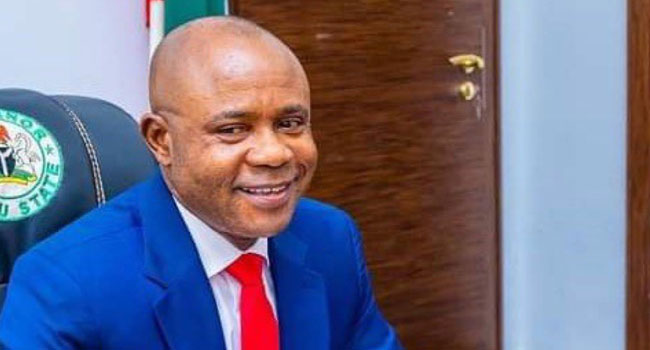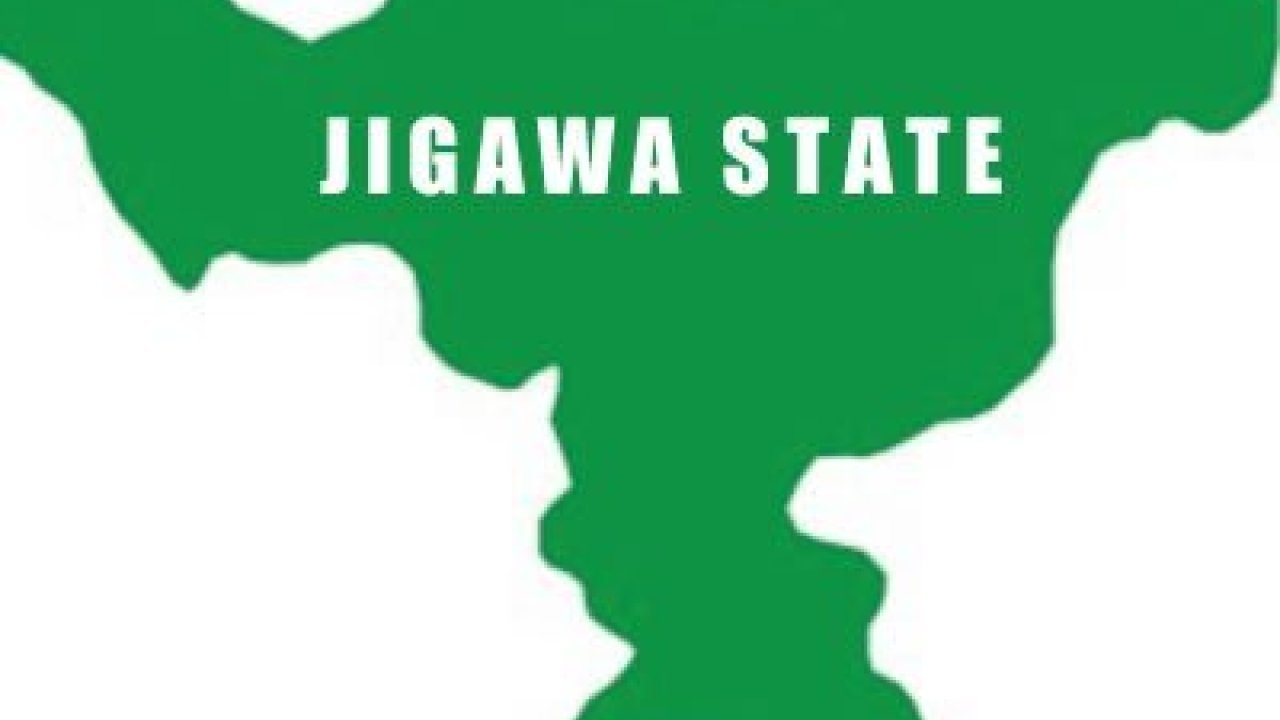News
Fuel subsidy removal: Implement social protection measures to mitigate impact on populace — NACCIMA urges FG
By Omolola Dede Adeyanju
The President, National Chamber for Commerce, Industry and Mines Association (NACCIMA), Dele Kelvin Oye has written to the federal government on implications and suggestions on the current economic reform.
According to the proposal, “The June 2023 edition of the ‘Nigeria Development Update’ of the World Bank revealed that Nigeria has one of the highest inflation rates, that pushed an estimated four million people into poverty between January and May 2023. The inflation has risen to a 17-year high, and has been driven by a number of factors, such as CBN funding of budget deficit, previous multiple exchange rates, devaluation, and trade restrictions. The report further stated that about 7.1 million poor Nigerians would become poor if the Federal Government failed to compensate or provide palliatives for them, following the removal of fuel subsidy. Based on these projections, the number of poor Nigerians will rise to 100.9 million if the government fails to compensate vulnerable citizens for fuel subsidy removal.
”Since there were so many fiscal and monetary policies distortions accumulated in the past, it is normal that the new reforms would be accompanied wide some negative side effects. While NACCIMA agrees that the removal of the oil subsidy and foreign exchange management reforms at the Central Bank of Nigeria (CBN) are crucial measures to begin to rebuild fiscal and monetary spaces for restoration of macroeconomic stability; the immediate impact is however causing increase in prices, which is adversely affecting poor and economically insecure Nigerian households. Consequently, many households are currently resorting to coping mechanisms, such as: not sending children to school; not going to the health facilities to seek preventative healthcare or; cutting back on nutritious dietary choices. These among other consequences justified the need for adequate palliatives to shield Nigerian households from the initial price impacts of the subsidy reform.
”In achieving the Opportunities in the Economic Reforms, It is the position of NACCIMA that the inevitable critical reform agenda of the current administration to address macroeconomic imbalances, equally provides a window of opportunity towards a transformative impact on the lives of Nigerians (individuals and corporate; so that the economy can re-establish a solid foundation for sustainable and inclusive economic growth.
”Certain specific, critical measures to build on the critical reforms include: restoring macroeconomic stability by increasing non-oil revenue; reducing inflation through a sequenced and coordinated mix of trade, monetary and fiscal policies, and completing them with foreign exchange reform; expanding social protection to protect the poor and most vulnerable, and developing and communicating how, as fiscal space recovers, resources will be redirected over time to meet urgent development challenges affecting the country.
”In order to implement such a comprehensive reform package, NACCIMA proposes a range of complementary measures, including a new social compact to protect the most vulnerable in the public and private sectors of the economy so as to maximize the collective impact on growth, job creation, and poverty reduction are necessary.”
The President noted that a national awareness campaign is essential for gaining public understanding and support for the elimination of petroleum subsidies as well as other preform programs.
“Such sensitisation should transparently communicate the rationale for the removal, the potential economic gains, and the government’s strategy to alleviate the immediate hardships faced by the poor and vulnerable, thereby helping to anticipate the type of backlash and protests observed during previous attempts to remove subsidies.”
He stated, “However, an important key to gaining the public’s trust in the government reform agenda is for the government to be transparent and accountable for the money saved by removing subsidies. The government must equally assure Nigerians that the end of subsidies is not merely a matter of policy; but a necessary step towards a more sustainable and prosperous future. This can be accomplished by demonstrating that the funds previously allocated to petroleum subsidies are now invested in directly beneficial public goods and services such as healthcare, education and infrastructure. In doing this, the government should collaborate with multiple stakeholders, such as labour unions and civil society organizations; as they exert considerable influence over public opinion, and their endorsement of subsidy elimination, among other programs could significantly contribute to its adoption by the public.
“Clearly there is the need for further oil sector reform to increase local production and reduce Nigeria’s reliance on imported refined petroleum This could contribute to the long-term stability of petroleum prices, mitigating the economic impact of the subsidy elimination. The recent opening of Dangote Refinery, the world’s largest single-train refinery, is a promising development, although it may not have an immediate impact on prices of fuel in Nigeria.
“In addition, the government should consider implementing social protection measures to mitigate the impact of the subsidy elimination on the vulnerable. These may include cash transfers, essential goods and services subsidies and job creation initiatives. With the petrol subsidy removal among other reforms, the government is expected to achieve fiscal savings of approximately N2 trillion in 2023, equivalent to 0.9 per cent of GDP. These savings are expected to reach over N11 trillion by the end of 2025. Therefore, compensating palliatives from such savings will be necessary to help shield the vulnerable in the economy (public, private and individuals).”
He added, “NACCIMA believes that the removal of fuel subsidies in Nigeria is an urgent and crucial move towards economic sustainability and prosperity. However, it must be managed through a holistic approach that includes public awareness campaigns, stakeholder engagement, sector reform, and social protection initiatives. This reform is a unique opportunity to free the country from the economic burden of the fuel subsidy regime and embark on a path towards a brighter and more prosperous future. In addition, implementing appropriate palliative measures will help to cushion the possible negative effects of the reforms and stimulate growth in the economy.
“To this end, the Federal Government should engage with the NACCIMA and other private sector organizations in developing a comprehensive plan to support businesses and mitigate the effects of the current economic challenges.”
News
NASS assures Information Ministry of improved funding in 2025


The Chairman, House Committee on Information, Ethics and Values, Rep. Olusola Fatoba, has assured of improved budgetary allocation for the Ministry of Information and National Orientation in 2025.
Fatoba disclosed this when he paid an oversight visit to the ministry in Abuja.
“We are on the same page with the Minister on the issue of low budgetary allocation for the ministry in the 2024 budget. The Ministry cannot perform its function effectively with poor funding.
“We would do everything within our powers, including lobbying, to ensure that the ministry is better funded to perform its function of educating Nigerians on government programmes and policies.
“We would also work with stakeholders to ensure improved budgetary allocation for the Ministry in the 2025 budget to enable its carry out its functions effectively, and deliver on its mandate,” Fatoba said.
Earlier, the Minister, Alhaji Mohammed Idris, had said that in a meeting with the committee in 2023, discussions were targeted at improved funding for the information and orientation sectors of the country.
“I know the efforts that the chairman and members of the committee, together with their counterparts in the Senate, put in to ensure that my ministry is properly funded to execute its mandate.
“Theirs, and our combined efforts have not given us the kind of budget that we should have for this ministry in view of the transformative journey that the ministry has embarked upon.
“We believe that the ministry has a critical role to play in ensuring that everything that the government wants to do is properly communicated, and Nigerians get to know, understand and support government policies and programmes.
“However, criticism is a very healthy thing and we all know that president Bola Tinubu is a democrat, who is always open to criticism that is healthy, progressive and aimed at moving the country forward.
“At the ministry, are not happy with the kind of budget that we have, because the allocation being made for the ministry is, to say the least, very meagre,” Idris said.
The minister lauded the committee for its support, adding that the executive was looking at the challenges being faced by the ministry to ensure that it got the appropriate funding to transform the sector.
Idris said that sometimes the ministry had to go the extra mile to use its contacts and goodwill within the industry to get things done.
“I think that Nigerians, especially the media, are very ready to help but of course, we also know that they are in business. They need to power their generators and pay their staff.
“Therefore, we also need to pay them. We should not take the relationship for granted,” Idris said.
News
Workers Day: Be patient with us —Gov. Mbah begs workers


Gov. Peter Mbah of Enugu State has appealed to workers in the state for patience, saying he remained committed in doing everything needed to make their condition better.
Mbah made the appeal at the 2024 Workers Day Celebration held at Okpara Square in Enugu on Wednesday with the theme: “People First.”
He said his administration would stop at nothing until it achieved workers’ welfare and would strive to fulfil his campaign promises.
The governor, represented by his Deputy, MrIfeanyiOssai, while acknowledging that workers needed improved wages to meet economic realities in the country, stressed that the income they received currently hardly met the basic needs of life.
“We all go to the same market, buy from the same petrol station and shops and children go to the same school and hospital.
“Be patient with us because we are putting things in place with the means available to the government to make life better for all of us.
“Wage award will not solve all the problems as it is just a palliative to cushion the effects of the hard economy and that is why we are building a system that will solve the problems in the long run,” he said.
He added that: ”You can witness the revolution in road infrastructure, aggressive work at International Conference Centre, the awarding of a contract to rebuild Hotel Presidential and revitalisedNigergas Company.”
On the state’s investment in SMART Schools, the governor said the government desired to do more but lacked the resources to meet them
“That is why we try to create wealth, and have been aggressive on our foreign and local investments and creation of jobs.
“And our wish and efforts is that in years to come, the workers will live beyond what they are currently facing.”
The governor further explained that his administration was building the SMART schools to train Enugu children for the future as well as improving public schools and healthcare systems.
He stressed that with an effective transport system, pressures on families would reduce as their would be no additional cost in maintaining their cars.
While commending workers for the support they had received from them since they assumed office, he promised to look into pension issues to ensure that every retiree got paid.
“I want to thank you for your hard work and commitment in driving government policies to ensure that they benefit the people,” Mbah said.
Earlier, the State Chairperson, Nigeria Labour Congress (NLC), Comrade Fabian Nwigbo, said the removal of fuel subsidy without anything in place to cushion the effects, created a lot of hardship for workers who received N30, 000 as minimum wage.
Commending Mbah for all his government was doing in the state, the chairperson urged him to ensure that after the verification of pensioners, payment of arrears of gratuity should commence to alleviate their sufferings.
He equally appealed to him to direct payment of arrears of pension to State Parastatals, Primary Schools and Local Government retirees.
On his part, the state Chairman, Trade Union Congress (TUC), Comrade BennethAsogwa, urged the governor to harmonise gratuity for state and local government retirees.
He also called for the review of the termination of the appointment of some staff of the Enugu State College of Education (Technical).
While lauding the governor for various developmental strides in the state, Asogwa equally appealed to him to regularise appointment of some civil servants recruited in 2012 by the Coal City Transport Services.
The highlight of the event included a march past by different labour unions in the state.
News
Jigawa announces new programme for civil servants


Jigawa Government has announced a new agricultural programme called “J-Agric” to ensure a brighter future for civil servants.
Gov. Umar Namadi announced the programme on Wednesday in Dutse at the 2024 Workers Day celebration.
He explained that under the programme, the government would provide opportunities for workers to invest in agriculture.
He said, “I’m glad to unveil a new programme initiated by this administration to secure the present and future lives of our workers.
“A sustainable agricultural programme is underway to provide free farmlands and financial loans to Jigawa civil servants for the purpose of agriculture.
“The state government, through the J-Agricprogramme, will provide greater opportunities for workers to invest in agriculture.”
Namadi added that under the programme, the government shall facilitate workers’ easy access to farmlands and credit facilities through cooperatives and other financial institutions.
This, he said, is to assure workers and their families a brighter future even after retirement.
“This is part of the administration’s plans through deliberate policy to improve the lives of people and food security,” Namadi said.
The Chairman of the Nigeria Labour Congress, MrSunusiAlhassan, commended the governor for the gesture.
Alhassan, however, urged the state government to expedite the launch of the programme as the rainy season is fast approaching “so as to ensure maximum benefit for all.”
-
capital market2 years ago
Rt.briscoe, FBNH, Others halts negative performance of stock market
-
Finance3 months ago
Court orders Sen. Victor Umeh to repay N136m bank debt to AMCON
-



 Abuja Update2 months ago
Abuja Update2 months agoUNDP, FG partnership needed to achieve inclusion, equity- Minister
-
Abuja Update1 month ago
Banks drive stock market performance with N147bn gain
-



 Business1 week ago
Business1 week agoTingo Group unveils Tingo Electric, Tingo Cola drink at Lagos launch
-



 Health2 weeks ago
Health2 weeks agoCapacity training will reduce migration of health workers- NPHCDA
-
News4 months ago
Oil thieves sponsoring malicious media campaign against Navy – Spokesman
-



 Infotech1 month ago
Infotech1 month agoWorld Backup Day: NITDA urges Nigerians to ensure backup of data
















